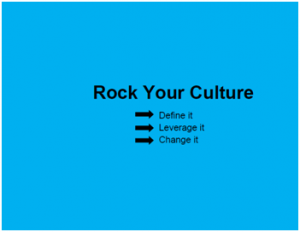 It was true in 2011 and it’s going to be true in 2012 as well. Companies are realizing competitive pay isn’t enough and that they need to compete on culture. That’s why I was drawn to this old CNET post detailing how one company offered these special goodies as a hiring bonus:
It was true in 2011 and it’s going to be true in 2012 as well. Companies are realizing competitive pay isn’t enough and that they need to compete on culture. That’s why I was drawn to this old CNET post detailing how one company offered these special goodies as a hiring bonus:
A briefcase filled with $11,000 in bacon-wrapped cash. A year’s supply of Dos Equis. An oil painting of yourself. Those are just a few of the hiring lures Los Angeles-based Scopely has bestowed upon “the most interesting engineer in the world.”
While software engineering isn’t in my future, I wouldn’t mind the briefcase. Or the bacon. Or the cash.
Faulty logic
One part of the article seemed to be based on faulty reasoning.
Startups spend lots of time looking for engineers because most of the ones looking for work aren’t the ones startups want.
“If an engineer has submitted a resume, I know it’s no good,” says Adam Pisoni, co-founder and CTO of Yammer, an internal social network for companies.
If someone applies to your company, you ignore them as a candidate? Seriously?
The article goes on to talk about how the company’s recruiters instead try to poach talent from other companies. Honestly, how is looking for a hotshot employee at Company A going to help support and grow the culture of Company B? How is that in any way different from posting jobs for people to apply at your company and sorting through those candidates?
We often look for solid candidates who will fit into and help grow our culture. We don’t exclusively seek out superstars who are so self-consumed that they could easily diverge from the carefully cultivated culture. It’s not just us, either. Looking only for experienced candidates flies in the face of the “candidates wanted: experience not preferred” mentality that companies like Chipotle believe in.
Companies that take the time to focus on how their culture differentiates them from the competition will be able to recruit and retain better talent over the long haul. Now about that money/bacon…


